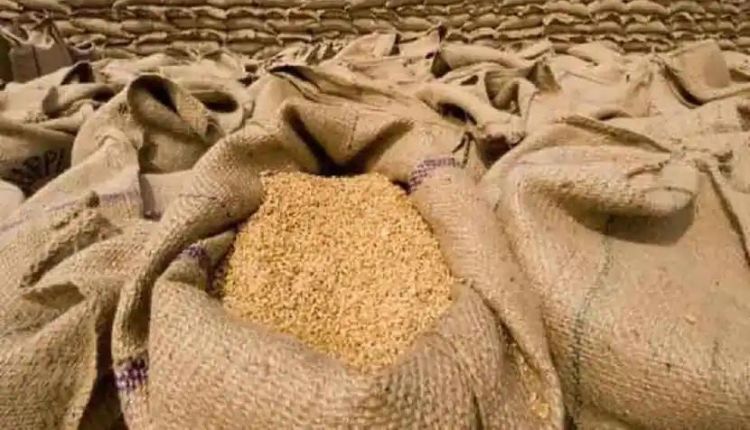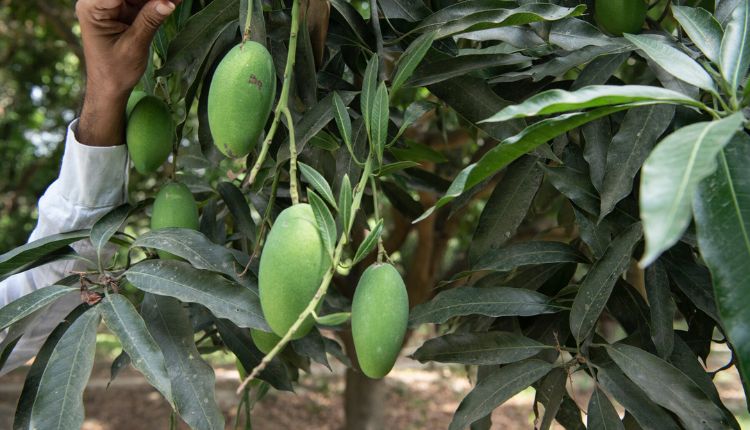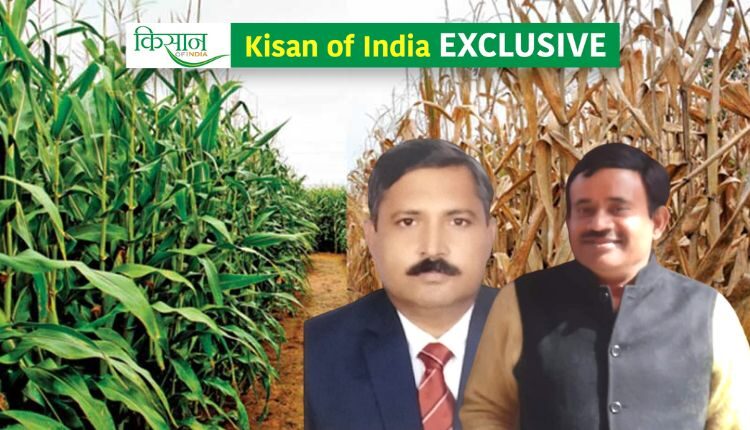Crop production decreasing due to climate change
Mango production down by 50 to 60 percent and wheat by up to 15 percent
In view of the impact of climate change on agriculture, Kisan of India had a special conversation with Dr. Rajiv Kumar Singh, Principal Scientist of Agronomy Division of Indian Agricultural Research Institute and Dr. H S Singh, Principal Scientist of Central Institute of Subtropical Horticulture.
While ensuring food and nutritional security for the world’s growing population, on the other hand, the impact of climate change on agriculture is a matter of concern for India. On the 93rd Foundation Day of the Indian Council of Agricultural Research on 16 July, Agriculture Minister Narendra Singh Tomar also expressed concern over the same. He had said that now research will have to be done according to climate change, so that the impact on agriculture can be stopped.
Regarding the impact of climate change on agriculture related work, Farmers of India have consulted Dr. Rajiv Kumar Singh, Principal Scientist of Agronomy Division of Indian Agricultural Research Institute and Dr. H S Singh, Principal Scientist of Central Institute of Subtropical Horticulture.
Wheat production decreased due to high temperature
The impact of climate change on agriculture this year was directly felt by Indian farmers through the reduction in wheat and mango yields. Farmers who grow wheat and mango in North India say that this year due to sudden increase in temperature, heat and humidity, there has been a drop of 50 to 60 percent in mango production and up to 15 percent in wheat.
Punjab, Haryana and Uttar Pradesh have the highest production of wheat, but this year saw the biggest drop in wheat production in two decades due to sudden rise in temperature.

Heat like May in March-April this year
According to meteorologists, the minimum temperature in the month of March is 16 degree celsius and the maximum temperature is 35 degree celsius. Whereas this year the minimum temperature was 21 degree celsius and the maximum temperature was 39 degree celsius. Meteorologists said that this type of temperature remains in the months of April and May. This year, the month of March in North India was as hot as April-May and the temperature broke records in many parts of the country.
Increased temperature at the stage of wheat grain formation caused damage
Dr. Rajeev Kumar Singh, Principal Scientist, Agronomy Division of Indian Agricultural Research Institute said that the wheat crop suffered the most due to the sudden scorching heat. Wheat crop was at milky stage in the month of March. The grains shrunk at this stage due to high temperature. Due to the shrinkage, the grains remained small, which directly affected the production of wheat and the farmers got less yield than every year.
Mango yield also decreased
Similarly, the effect of climate change was also seen on mango production. Principal Scientist of Central Institute of Subtropical Horticulture, Lucknow, Dr. H S Singh said that it is necessary to maintain a certain temperature at the time of flowering of mango and at the time of fruit setting. Dr. Singh said that the temperature of 30 degree Celsius is suitable for flowering and pollination in mango. According to India Meteorological Department, IMD, the average maximum temperature recorded in March 2022 across the country was 33.10 degrees celsius, the highest in the last 122 years. In March 2010, the maximum temperature of the country was recorded at 33.09 °C. After this, due to the heatwave, the pollination process in mango was greatly affected. Dr. H S Singh further said that only those mango trees, which had flowered earlier and pollination started before the temperature rise, were able to bear fruit well.

Projected to reduce production by 4.5 to 9% due to climate change
The effects of climate change are global, but given the increasing population in a country like India, the situation here is more vulnerable. According to the National Initiative on Climate Resilient Agriculture (NICRA) project of the Indian Council of Agricultural Research, the negative impacts on agriculture due to climate change in India from 2010 to 2039 have been assessed. In this estimate, crop yields were estimated to decrease by 4.5 to 9% due to the effects of global warming.
Since agriculture accounts for about 16 per cent of India’s GDP, a negative impact of 4.5 to 9 percent on production means that climate change would result in a loss of about 1.5 per cent of GDP per year. The Government of India has accorded high priority to research and development in the agriculture sector to tackle climate change. The Prime Minister’s National Action Plan on Climate Change has identified agriculture as one of the eight National Missions.
Work being done under the NICRA project to reduce the impact of climate change on agriculture
The National Innovation Climate Resilient Agriculture Project (NICRA) of the Indian Council of Agricultural Research aims to develop advanced technologies for crops, livestock and fisheries to reduce the negative effects of climate change. The goal is to take them to the farmers’ fields.
Under this project, the capacity building of agricultural scientists and farmers is to be developed. In this project strategic research is planned in a network mode at the premier research institutes of ICAR to cover crops, horticulture, livestock, natural resource management and fisheries sectors.
Under this project, in the first phase, the focus is on crops like wheat, rice, maize, tur, groundnut, tomato, mango and banana. Along with this, research work is also going on animal husbandry and improved breeds and species of fish.
Research is being done on varieties and techniques, what is the purpose of research?
- Under the research, the varieties effective in dealing with disasters like drought, heat, frost, floods in major food crops and horticulture crops are to be assessed.
- Continuous monitoring of the effect of greenhouse gases on crops.
- Developing adaptive strategies by enhancing conservation agriculture.
- To study the effects of pests and diseases under changing seasons.
- Creating adaptation strategies through nutritional and environmental manipulations in livestock.
- Harnessing the beneficial effects of temperature in freshwater and marine fisheries to better understand the spawning behaviour of fish.
Contact us: If farmers want to share information or experiences related to farming with us, then they can do this by calling us on the phone number 9599273766 or by writing an email to [email protected] or by sending your recording. Through Kisan of India, we will convey your message to the people, because we believe that if the farmers are advanced then the country is happy.
You can connect with Kisan of India on Facebook, Twitter, and Whatsapp and Subscribe to our YouTube channel.



